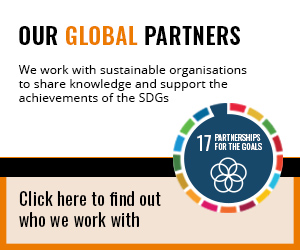Karli Hiscock, Partner, Bates Wells
| In the above video, Bates Wells partner Karli Hiscock explains the role the B Corp movement could play in the future of responsible business; what being a B Corp means to Bates Wells; and how Karli helps businesses to operate more sustainably through her role as a real-estate lawyer. |
Today’s consumers are shifting their buying habits. A new wave of ‘conscious consumerism’ has seen an upward trend in buying decisions informed by whether a brand has a positive social and environmental impact. Whether it’s a person buying for themselves or a business procuring goods or services, it will be those purposeful brands that can demonstrate a genuinely positive impact that will benefit from this shift in buying behaviour. Businesses that carry on ‘business as usual’ will increasingly find their goods and services are more likely to be left on the shelves.
Let’s start by busting some misunderstandings about purpose and impact.
‘You can only pursue purpose and impact at the expense of profit.’
Nonsense. Profit is good. And profit is essential for all businesses. If an impact-driven business was not able to turn a profit or, indeed, not trying to turn a profit, how would it be able to invest in all the things that create that positive impact (the right people, a sustainable supply chain, reduction in carbon emissions and positive actions to support the environment, work to support diversity and equality, and developing outstanding products and services for their customers)?
‘Corporate purpose is a fad.’
Please. Fads are dictated by the times we live in.
When Milton Friedman proclaimed his theory of shareholder primacy 50 years ago, the UK was a very different place – and an awful place by today’s standards. Homosexuality was illegal. There were no laws against race or sex discrimination. We had no minimum wage.
The world has moved on from businesses existing just for shareholders.
How will we solve society’s problems if businesses don’t play their part? If the public sector doesn’t address the critical problems we face socially and environmentally, is it all on the shoulders of the third sector? Charities do an amazing job, but they are underfunded and can’t do it on their own. It’s time for corporates to step up.
‘The current system works.’
For whom?
Inequality is widening; we have a climate emergency and biodiversity crisis; and we have 750 companies backing the Better Business Act, all saying that the current system is broken and that we need to transform the way we do business.
What are the benefits of pursuing purpose and impact?
The supply chain: For a business thinking about its impact, a good place for it to start is its supply chain.
By buying from a purpose-driven business, you create a positive impact by virtue of that business creating a positive impact. And if your business is purpose-driven, other businesses will buy from you to enhance their own positive impact.
At Bates Wells, many of our clients are purpose-driven organisations who want reassurance that advisers in their supply chain are maintaining the same environmental standards and share the same values they do. It is this virtuous cycle that will create exponential positive impact and increase sales at the same time.
Brand development: Doing things like treating staff fairly, reducing your carbon footprint and giving a percentage of profits to charity are all part of brand development that strengthens a company’s reputation and increases client loyalty, creating more value for a business. We’re working with more and more commercial organisations in the purpose-driven space, and our commitment to these things has meant we can differentiate from other law firms trying to get a share of this expanding market.
Recruitment: In many industries, it’s a tight race for the best talent. For us, focusing on purpose and impact allows us to attract talent that might otherwise be drawn to larger firms. The generations coming through now are driven by values and will investigate yours before deciding whether to join your team. We consistently punch above our weight and retain great people because they want to work somewhere that shares their values and makes a difference.
We have seen first-hand how working with purpose to generate positive impacts can really help our business grow and mature. While for us this is a choice, it is increasingly likely that a lot of what we already do will become a requirement if the UK is to keep up with other markets and address the challenges around climate change and social inequality before it gets too late. Isn’t it better to do this now, while you have space and time to do it your own way? Purpose is good for business and good for the planet… what could possibly be the argument against it?
At Bates Wells, top-tier legal advice is coupled with a real desire to drive change. Visit bateswells.co.uk to learn more
By Martin Bunch, Managing Partner, Bates Wells





